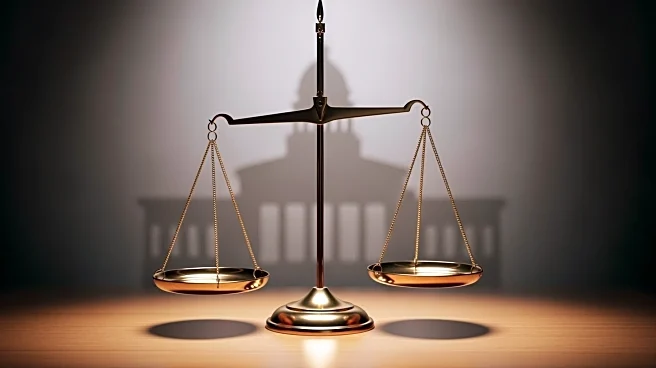What's Happening?
Illinois has filed a request with the U.S. Supreme Court to deny President Trump's appeal to deploy National Guard troops in the Chicago area for immigration enforcement. The state argues that the high
court's involvement is premature, as the district court's decision is still under appeal. The Trump administration claims that ongoing protests and violence justify the deployment, but Illinois contends that these actions are constitutionally protected and do not warrant military intervention. A hearing is scheduled to determine if the temporary restraining order against the deployment should be extended.
Why It's Important?
The case highlights the tension between federal authority and state rights, particularly in matters of immigration enforcement and public safety. If the Supreme Court sides with President Trump, it could set a precedent for increased federal intervention in state affairs, potentially impacting local governance and civil liberties. Conversely, a decision favoring Illinois could reinforce state autonomy and limit federal military involvement in domestic issues. The outcome may influence future interactions between state governments and federal authorities, especially in politically charged environments.
What's Next?
The Supreme Court has yet to request further arguments or briefings, leaving the timeline for a decision uncertain. Meanwhile, Judge April Perry will hold a hearing to decide on extending the restraining order. The case's progression could prompt reactions from political leaders and civil rights groups, potentially leading to broader discussions on federalism and the role of the military in domestic affairs.
Beyond the Headlines
The legal battle underscores the broader debate over the militarization of immigration enforcement and its implications for civil rights. It raises ethical questions about the use of military force in civilian contexts and the potential erosion of democratic principles. The case may also influence public perception of federal immigration policies and their enforcement methods.











